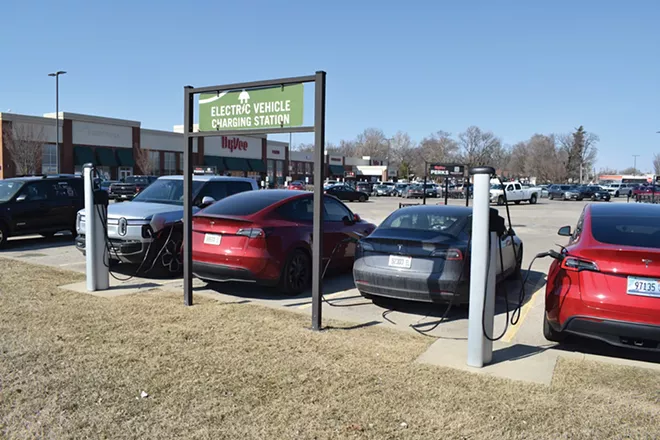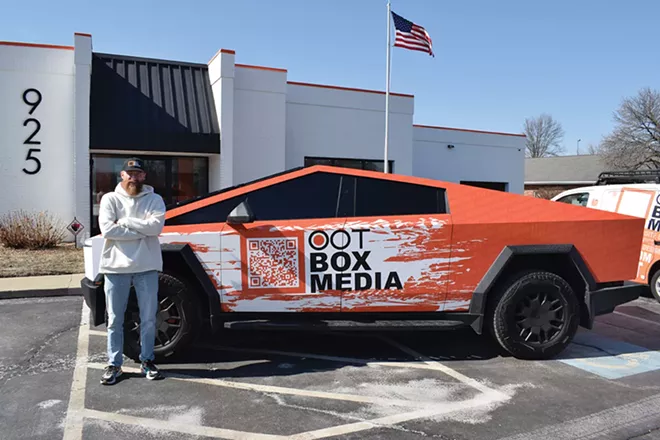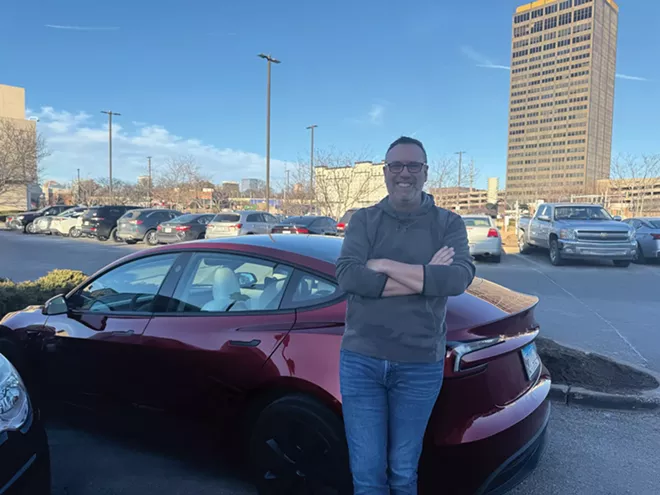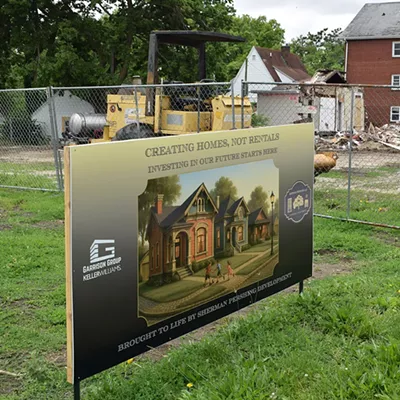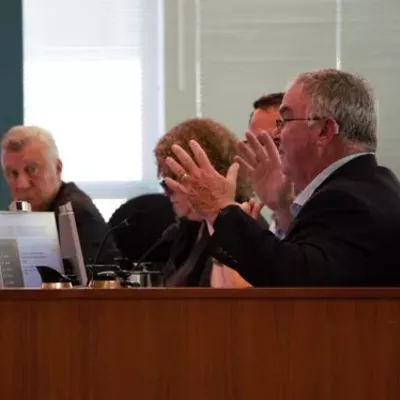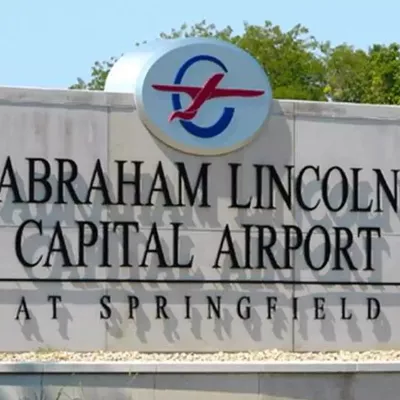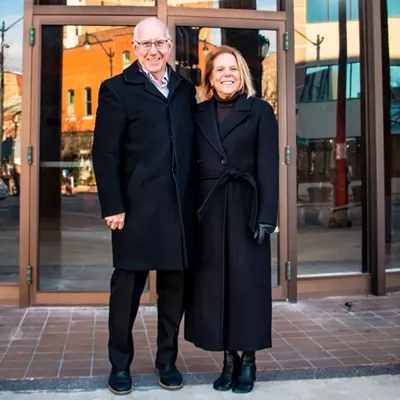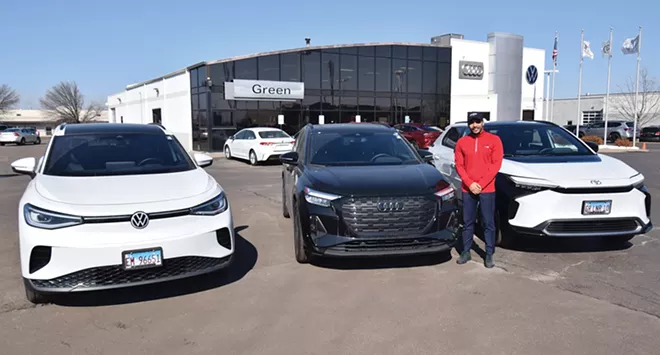
Electrons are gradually replacing hydrocarbons as the propulsive power of choice for many Americans as electric-powered vehicles continue to make inroads with the motoring public.
According to Kelly Blue Book, electric vehicle (EV) car and pickup truck sales reached 1.3 million in 2024, which is a 7.3% increase from 2023. EVs made up 8.7% of all vehicle sales last year, and during 2025 one in four vehicles sold are expected to be EVs or hybrids, which use a combination of electricity and gasoline for power. In Illinois, approximately 3,500 fully electric vehicles are being purchased by residents every month.
Still, more than 90% of vehicles sold last year were powered by internal combustion engines, and consumers seem wary of embracing cars that plug in rather than fill up.
EVs are becoming a common sight in the Springfield area, although besides the offerings from industry leader Tesla and upstart Rivian you may not know it because EV offerings from traditional automakers closely resemble their gas-powered counterparts.
According to the Illinois Environmental Protection Agency, there were 1,183 all-electric vehicles registered in Sangamon County as of February 2025. In adjoining counties, Macon had 298; Macoupin, 112; Christian, 70; Morgan, 66; Logan, 56; Montgomery, 50; Menard, 27; and Cass, 12.
Cook and the collar counties lead the state in EV ownership, with the city of Chicago home to 33,693. In downstate Illinois, McLean County, home of the Rivian factory, leads the pack with 1,894 EV owners. The lowest level of EV ownership in Illinois occurs in rural western and southern Illinois, with just three registered in Pope County on the state's far southern tip.
What are the experiences of Springfield EV owners with this new wave of personal transportation? What is state government doing to accommodate EVs, and what special issues do the vehicles create for lawmakers? What do the dealers think who sell both EVs and gas-powered vehicles? Read on for a closer look at the local EV scene.
Note that this story does not delve into Elon Musk's ownership of EV manufacturer Tesla.
"I don't think there's any downside."
Springfield EV owners we contacted are happy with their purchases and driving experiences, with some caveats.
"You need to identify chargers along the way for longer trips and also factor in a little bit more time for your trip to use the chargers," said Springfield Tesla owner Mark Roberts. "For example, if it's a six-hour trip in a gas-powered car, you are probably looking at a seven-hour trip in an electric car."
Roberts plugs his car in at home each night when he's not traveling and uses public chargers for longer road trips. Roberts vividly remembers the first time he experienced "range anxiety" and wondered if his car would run out of battery power before he reached his destination.
"It was extremely cold, I had a full charge, and I needed to drive to Quincy and back. Well, there are no superchargers along most of the way, so I just decided to make the round trip without recharging," Roberts recalled. "Once I got back to Springfield it showed that I had only about 15 miles left, so that was pretty close."
Roberts was skeptical about EVs at first until he witnessed a friend's positive experience with a Tesla. Even then, Roberts planned to purchase a gasoline-powered vehicle, but when there was a lengthy delay in the car's delivery, he also ordered a Tesla and decided to keep the one that arrived first. Both vehicles ended up arriving at the same time.
"After only a few hundred miles the check engine light came on in the gas-powered vehicle and then it sat in the repair shop for months, so I decided to give that one up," Roberts said. "If a person is looking for a vehicle that's used primarily for city driving, I think an EV is the way to go."
The Roberts household now has a foot in both camps with one gas-powered vehicle and one EV.
"I have mixed feelings about government subsidies for more charging stations," Roberts said. "I would certainly love to see more charging stations, but as an EV owner I am not sure it would be fair for non-EV owners with no intention of buying an EV to have their tax dollars going toward that."
Matthew Rawlings of Springfield purchased a Tesla in 2018 because he and his wife are pro-environment and welcomed the gasoline savings.
"We were a one Tesla and one gas car family for a while, then this past year we pulled the trigger and went full EV," Rawlings said. "I don't think there's any downside. I have had no reliability issues or warranty repairs. The only thing I have to do on my car is change the washer fluid and rotate the tires, and my wife can charge her car for free at work."
Although the Rawlingses experience a 25% drop in range on extremely cold days, they've never had an issue with range anxiety.
"We've taken the cars on road trips to Wisconsin and Missouri with no problems, but it depends on where you are going," Rawlings said. "When we went to Wisconsin we stopped once in Rockford."
It's hard to miss Andrew Bartlett's EV. The owner of Springfield's OOT Box Media owns arguably the most recognizable EV on the market, the large, severely angled Tesla Cybertruck, with his vehicle painted bright orange and sporting the company logo.
"The first day I couldn't decide if I liked the way it looked. The second day I decided I liked that it was kind of weird," Bartlett said. "I saw a marketing opportunity with it. I knew it was going to be different than anything on the market, and I was excited about the possible technology that was going to be in it."
Bartlett had always purchased inexpensive vehicles in the past but was intrigued when the Cybertruck was announced as a concept about six years ago. Bartlett paid a $100 deposit and then five- and-a-half years later received a notification that he could place an order. Although the sale price had gone up since he paid the deposit, Bartlett's gut told him to take the plunge.
"You just fill everything out on the Tesla app, place your order, connect how you're paying, and they give you a notice whenever it's ready to come pick it up," Bartlett said.
"It is just so cool, it makes other vehicles feel dumb," Bartlett said. "You just walk up to it, it unlocks, and you get in. When you get out, you walk away, it locks and rolls the windows up. You hardly ever have to use the brake because it has regenerative braking, and that helps with the wear and tear on the vehicle."
Bartlett keeps the Cybertruck plugged in at his office while he's working.
"I haven't done any long road trips, and you probably get a little bit of range anxiety there if you don't keep it charged," Bartlett said. "The reality is though, on a day-to-day basis, you won't have to worry about that."
State builds public charging network
Range anxiety, the worry that an electric vehicle will not have the battery power to reach its destination, is one of the concerns that Illinois state government is working hard to address.
"We've created a basic charging network in the state which will alleviate people's range anxiety," said state EV Officer Megha Lakhchaura of the Illinois Environmental Protection Agency. "They can safely buy electric vehicles knowing that there are almost 500 locations that are going to serve them as they go across the state."
Illinois has primarily used state funds and some National Electric Vehicle Infrastructure funds for the past two-and-a-half years to install EV charging stations at 50-mile intervals along interstate highways in the state, Lakhchaura said. With state-supported and funded projects, as well as NEVI projects, Illinois will have 2,000 fast-charging ports at 498 locations by 2026.
"The charging locations are spread fairly across the state and people can actually commute north to south and east to west as more stations come online," Lakhchaura said. "We have a state grant program, and in our next round we will prioritize counties that have not yet received any charging projects."
However, that next round of NEVI grants is on hold. According to the Illinois Drives Electric website, on Feb. 6 the U.S. Department of Transportation suspended funding approval of Illinois' electric vehicle infrastructure deployment plan. No new federal funds can currently be obligated for charging infrastructure grants, although the previously approved projects along Illinois' interstates will not be affected. The state will continue to review the unfunded grant applications it has received as it waits to see what action the federal government may take, the website said.
"What the state has been able to do is get in place the first round of the program, which is having a charger every 50 miles along the interstates," Lakhchaura said. "The second phase of the plan would have been at other highways and locations. We are not writing them off, we are just waiting for more direction from the new administration. In spite of any federal issue, I want to reassure people that there is going to be a foundational public charging network in place that they can use even if we don't get any more federal dollars."
The Illinois EPA was awarded two other federal grants last year. Those grants will help pay for commercial truck charging stations and the development of "clean ports" infrastructure at Illinois' lake and river port facilities.
The state also has a program where Illinois residents may receive a $4,000 rebate on the purchase of electric vehicles. The $14 million fund to provide those rebates should fund approximately 3,500 such purchases, Lakhchaura said, and Illinois will continue the rebates until the money runs out.
Lakhchaura said that Springfield has a higher concentration of EV charging stations than most Illinois communities. According to PlugShare, the city of Springfield has 183 public EV charging stations, 21 of which are free, and 28 of which are DC fast chargers. DC, or direct current, chargers require a higher investment but can charge EVs much more quickly than AC, or alternating current, chargers, which utilize the typical electrical power found in most residences.
Lakhchaura estimated that there are nearly 128,000 electric vehicles on the street in Illinois versus approximately 11 million total vehicles, so EVs are a very small percentage of the statewide fleet at the moment. But the state is adding almost 3,500 full battery electric vehicles every month, and she expects that number to rise.
More EVs mean less tax revenue
The Illinois gasoline tax is currently 47 cents per gallon and that Motor Fuel Tax, as it is called, helps to determine how much money is available to maintain and repair the state's roadways. The issue is that the Motor Fuel Tax is only paid by the drivers of vehicles with internal combustion engines. Since electric vehicles use no gasoline, as more EVs hit the highways, that means less money for road work.
State gasoline taxes currently fund about half of Illinois' road and bridge projects. According to a study by the Illinois Economic Policy Institute, Illinois' plan to put 1 million electric vehicles on the road by 2030 could result in a $4.3 billion loss in Motor Fuel Tax revenue normally used for transportation projects.
State Rep. Dave Vella, a Loves Park Democrat, has introduced House Bill 1291 in the Illinois General Assembly to address the issue. The bill as written provides that after July 1, every electric vehicle owner in Illinois shall pay an annual fee.
"This is going to be like a surcharge for electric vehicle owners to try and make up for what they wouldn't pay in Motor Fuel Tax." Vella said. "I'm realizing that as more electric vehicles are on the road, they are a little harder on the road because they are heavier, and we are going to have less gas tax to pay for those roads."
Vella said he looked at three possible ways to make up that revenue shortfall while drafting his bill. The first was to put a GPS tracker in each EV, track how many miles those vehicles are driven on Illinois roads, then charge owners accordingly.
"But I think people are freaked out about having the government track them, so that wouldn't work," Vella said.
The second option was a purchase fee so when someone buys an EV they pay an additional tax, with the rate determined by the vehicle's sale price. In the end, Vella decided instead to go a third route.
"We determine the number of EVs on the road, and working with the Illinois Department of Transportation we figure out what fair portion (of lost Motor Fuel Tax revenue) each EV owner should pay," Vella said. "Right now, I think EVs are less than 1% of the cars on the road so it would be a very small amount."
As of press time House Bill 1291 was still being heard in committee. State officials urged careful consideration of any legislation addressing EVs in Illinois.
"While it is true that EVs do not pay the gas tax, the amount they want EV owners to pay has to be fair," said Lakhchaura, the Illinois EV Officer. "So while we support that EV owners should pay their fair share of road ownership, we believe it's a process that should be done more carefully and there needs to be more deliberation."
Vella also sponsored House Bill 1248, which is being heard in committee, that would require all EVs purchased by Illinois for state government use to be made in America.
"I would rather put state money into American EVs," Vella said. "We have Rivian right now and we are going to have Stellantis in my district, and soon at the Ford plant in Chicago they are going to start making EVs."
Federal mandates and incentives
Auto dealerships that sell EVs feel the public response to them has been lukewarm.
"The people who have EVs really seem to like them," said Mylas Copeland, managing partner of Green Toyota, Volkswagen and Audi in Springfield. "But honestly, electric vehicles are kind of slow movers. The biggest concern is the infrastructure. We have to find a way so people can charge at a convenient place, and right now it's not very convenient."
Copeland said during the past several years there was a strong push by the federal government to move the auto industry more toward EVs, and the manufacturers had no choice except to try to comply with the resulting mandates.
"The dealers were expressing concern by saying, 'Our consumers don't necessarily want this.' They aren't lining up and screaming, 'I want electric,'" Copeland said. "Hybrid, absolutely, it's the best of both worlds. Fully electric, not so much."
Those federal mandates came with incentives such as consumer rebates for the purchase of new or used EVs. The federal government still offers tax credits of up to $7,500 for the purchase of a new EV and credits of up to $4,000 for a used EV with a sticker price of $25,000 or less. But the mandates are being eased and the incentives are dwindling, which Copeland said isn't necessarily a bad thing.
"It finally clicked when the manufacturers realized that the rules are changing and they don't necessarily have to push so hard in this direction," Copeland said. "I think the consumers really need to be able to purchase what they want."
Larry Doll, legal counsel for the Springfield-based Illinois Auto Dealers Association, agreed that government rebates for purchasing vehicles aren't always the best thing.
"It's been my experience that when the manufacturers and the government have to offer incentives to buy something, that must mean that people aren't really willing to buy it," Doll said. "Our dealers are ready to sell whatever people want to buy and, quite frankly, I think electric vehicles are still kind of a niche product."
Many consumers are telling dealers that the electric part of the EV is their primary concern. Everything inside the vehicle that requires electricity, including cellphone charging, air conditioning, windows, wipers, and even giving the car a little bit more acceleration, eats into the vehicle's range before it needs recharging. Cold temperatures also drain the battery more quickly.
There's also the issue of charger availability.
"If you want to take the family to Wally World halfway across the country, it's not real practical in terms of a reliable, built-in charging network," Doll said. "Plus, once you get hooked up to a plug, it's a 20 to 30-minute process to top off your tank to 80% as opposed to five minutes at the gas pump."
Illinois' auto dealers bristle at the way the all-EV manufacturers such as Tesla, Lucid and Illinois-based Rivian flout a decades-old Illinois law that requires consumers to purchase vehicles through dealerships and not directly from the manufacturer.
"Our Franchise Act was created probably 40 years ago with the idea of leveling the playing field between dealers and manufacturers and fostering competition that benefits the public," Doll said.
"The benefit of a dealer network is that when your vehicle breaks down while it's under warranty or if there's a recall, the dealer is the advocate for the consumer," Doll said. "Brands like Tesla, especially if there is a warranty claim, they'll do everything to fight it because it costs Tesla money and there's no Tesla dealer to do the warranty work."
The Illinois Auto Dealers Association fought unsuccessfully in court to stop direct-to-consumer sales, Doll said. In addition, some traditional vehicle manufacturers like Volkswagen are now planning to bypass their own dealers to sell hot new EV models directly to consumers.
"It is definitely shortsighted to compete with the dealer network that helped the factory's first customers buy all of those vehicles," Doll said. "The dealers invest a ton of money in facilities and technician training to provide a service base, so the dealers have partnered with the factories for a long, long time and helped to get them where they are."
Doll said that dealers are an important economic force in the state. Franchise dealers in Illinois provide 42,947 direct jobs and support an additional 51,617 indirect and induced jobs including drivers that transport the vehicles to the dealerships, related repair jobs and parts suppliers.
Electric vehicle manufacturing is also big business. Bloomington-Normal based Rivian's sales forecast for 2025 is between 46,000 and 51,000 electric vehicles, a decrease from the 51,579 deliveries in 2024. Rivian's facility in Normal has manufactured more than 100,000 EVs since production began in 2021. Last year, the state's Department of Commerce and Economic Opportunity announced an $827 million incentive package to help Rivian expand operations at the plant, improvements in public infrastructure and job training programs for the company's workforce, leading up to the production of Rivian's midsized SUV, R2. Rivian has invested more than $2 billion in Normal and generated a value-add of more than $3.9 billion to the local economy, according to the company's website.
California-based Lucid's 2025 sales forecast is about 20,000 vehicles, nearly double the 10,241 vehicles Lucid delivered in 2024.
According to Tesla, which is headquartered in Austin, Texas, the manufacturer delivered 1.78 million vehicles last year, including large trucks and delivery vans, slightly below the 1.8 million vehicles it delivered in 2023.
According to Kelly Blue Book, the two best-selling EVs were, once again, Tesla's Model Y SUV and Model 3 sedan, but new models from other manufacturers are eating away at Tesla's market dominance.

